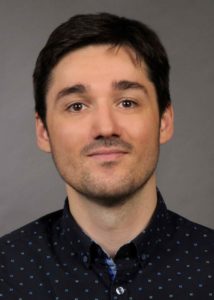Read his Emerging Investigator article “Robust palladium catalysts on nickel foam for highly efficient hydrogenations” and read more about his work in the interview below:
How do you feel about Catalysis Science & Technology as a place to publish research on this topic?
Catalysis Science & Technology is the perfect venue for this type of work – spanning materials science to catalytic application. The journal has an excellent reputation in the catalysis community, a great diversity of published research spanning all areas relevant to catalysis, and a global reach.
What aspect of your work are you most excited about at the moment and what do you find most challenging about your research?
Our goal is to discover and develop increasingly complex hierarchical catalyst systems based on monolith cores. By developing hierarchical systems we incorporate multiple components and begin to delineate their influence/contribution to the whole system and how that correlates to catalyst performance in terms of reusability, reactivity, and selectivity. This is very exciting because we have a great deal of components we can combine to create these new systems, with the possibility of discovering many new and exciting catalysts. The most challenging aspect is also figuring out exactly how all of these components interact. The other difficulty is characterization of monolith systems and delineation of reaction mechanisms.
In your opinion, what are the most important questions to be asked/answered in this field of research?
Just in the past few years we have made great strides in better understanding catalyst-support relationships. As we work with increasingly more complex catalyst systems, we now need to understand how all of the components are influencing each other. Along those lines, we still need to better understand preparative route to catalyst property relationships, even starting out from molecular precursors – for example we use atomic layer deposition as part of catalyst design and we need to understand what the impact of molecular precursor choice is on the resulting catalyst performance. Finally, we should strive to enhance reproducibility, which has always been a difficult topic in heterogeneous catalysis.
Can you share one piece of career-related advice or wisdom with other early career scientists?
Your greatest legacy is the success of the people you mentor. Do your best to prioritize those that have taken a chance on joining your group.
Keep up to date with Titel and his research on his lab website.











